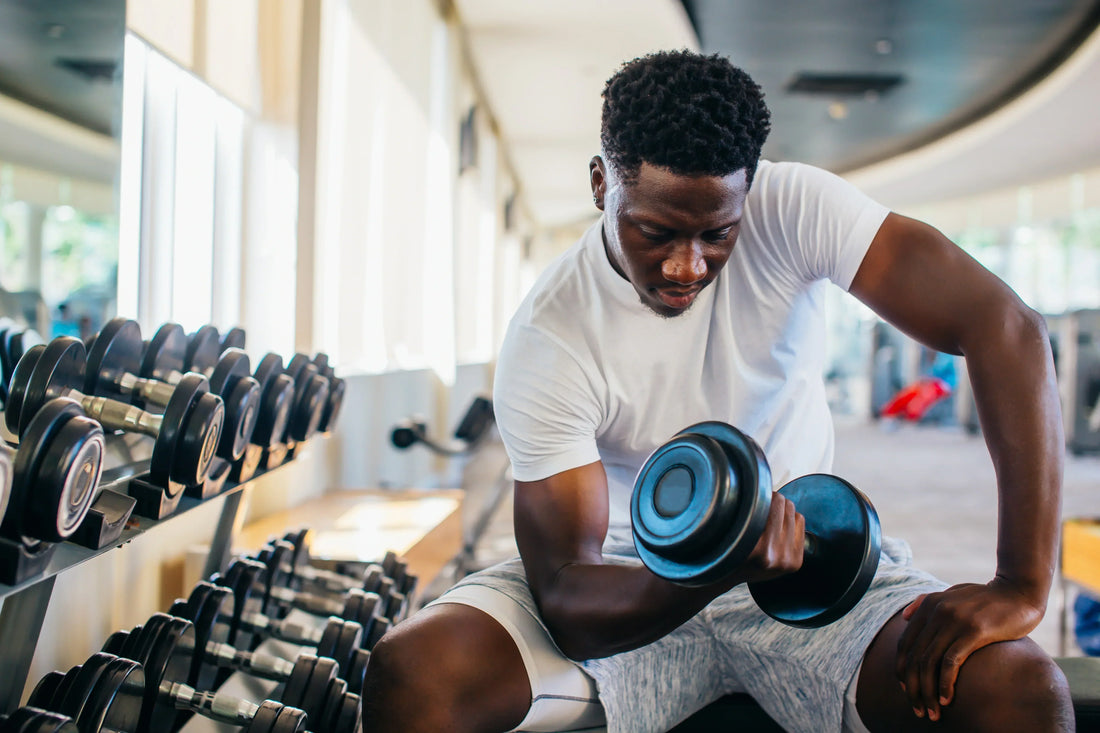
How Working Out Can Increase Sperm Count and Health
Share
Physical activity is a cornerstone of overall health, offering benefits like improved cardiovascular function, enhanced mood, and better weight management. For men, regular exercise not only supports general wellness but also plays a crucial role in reproductive health. Studies show that exercise can positively impact sperm count, motility, and overall fertility. However, the type and intensity of exercise matter. This guide explores how exercise affects sperm health and provides actionable tips to optimize male fertility through physical activity.
The Science Behind Sperm Count and Exercise
Regular physical activity can improve sperm health by boosting testosterone levels, enhancing blood circulation, and reducing oxidative stress. These factors are critical for producing healthy, motile sperm. Studies have shown that moderate-intensity exercise, like brisk walking, cycling, or swimming, can increase sperm count and motility, while sedentary lifestyles often lead to lower sperm quality.
What Effect Does Working Out Have on Sperm?
Working out helps regulate hormones like testosterone, which is essential for sperm production. It also reduces stress and inflammation, both of which can negatively impact fertility. However, overtraining or engaging in high-impact activities can lead to the opposite effect. Intense workouts may increase stress hormones like cortisol, potentially reducing testosterone levels.
Exercises to Approach with Caution
Certain physical activities, such as boxing, horseback riding, and long-distance cycling, can have a negative impact on sperm health. These activities may involve repeated trauma or pressure to the scrotal area, which can harm sperm production. Men who compete in these sports should consider analyzing their sperm health to ensure their fertility is unaffected. Visit CryoChoice’s Analyze Your Sperm page to learn more.
The Best Exercises for Sperm Health
When it comes to improving sperm health, not all exercises are created equal. Here are some of the best options for enhancing sperm count and motility:
-
Weight Lifting: Moderate strength training boosts testosterone levels, supporting sperm production. Avoid overtraining to prevent hormonal imbalances.
-
Running or Jogging: Cardiovascular exercises improve blood flow and reduce oxidative stress, benefiting overall sperm health.
-
Walking: A low-impact activity that supports circulation and reduces stress without overexertion.
-
Yoga: Promotes relaxation, reduces stress, and improves hormone balance, all of which are beneficial for sperm quality.
-
Swimming: A full-body workout that is gentle on the body and enhances cardiovascular health without undue strain.
More Than Just Exercise: Other Ways to Improve Sperm Health and Quality
While exercise is vital, other factors also influence sperm health. Addressing these areas can further optimize fertility:
-
Nutrition: A diet rich in antioxidants, vitamins (like Vitamin D and folate), and minerals (like zinc) supports healthy sperm production. Avoid processed foods and excessive sugar.
-
Occupation: Men in high-stress jobs or those exposed to hazardous materials may face fertility challenges. Consider sperm analysis and take steps to minimize exposure to harmful substances.
-
Environmental Toxins: Reduce contact with pesticides, heavy metals, and industrial chemicals. Use protective gear and ensure proper ventilation when necessary.
-
Lifestyle Choices: Limit alcohol consumption, avoid smoking, and steer clear of recreational drugs to maintain optimal sperm health.
Exercise is a powerful tool for improving sperm health, but balance is key. Moderation in physical activity, combined with proper nutrition and lifestyle changes, can significantly enhance male fertility. For men involved in high-impact sports or occupations that pose risks to fertility, analyzing sperm health can provide peace of mind. Visit CryoChoice’s Analyze Your Sperm or Freeze Your Sperm pages to take proactive steps toward preserving your fertility.


